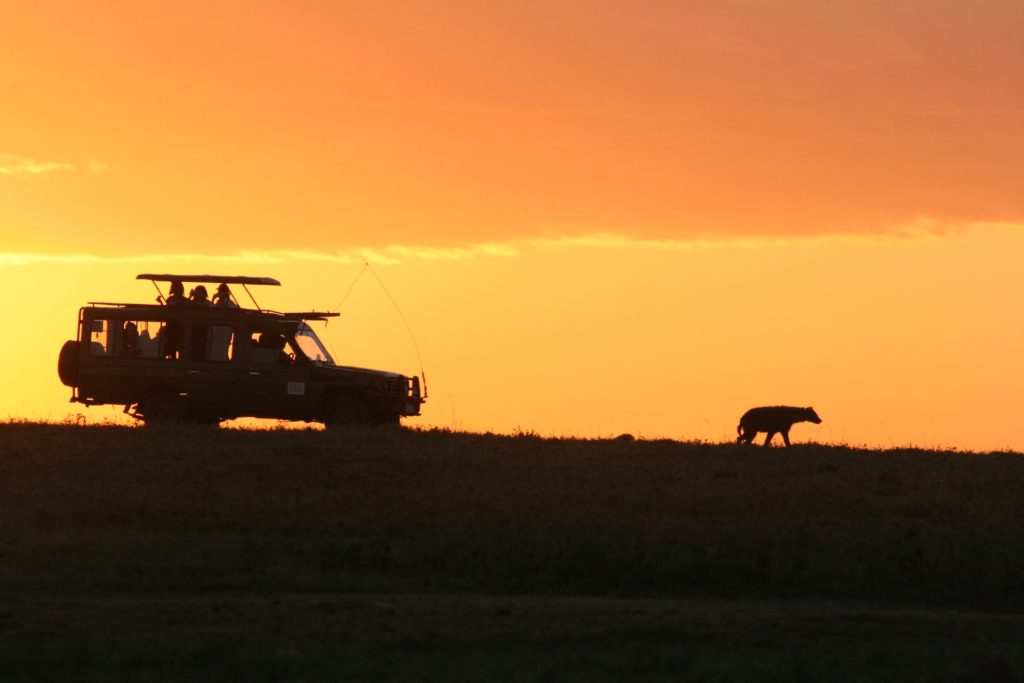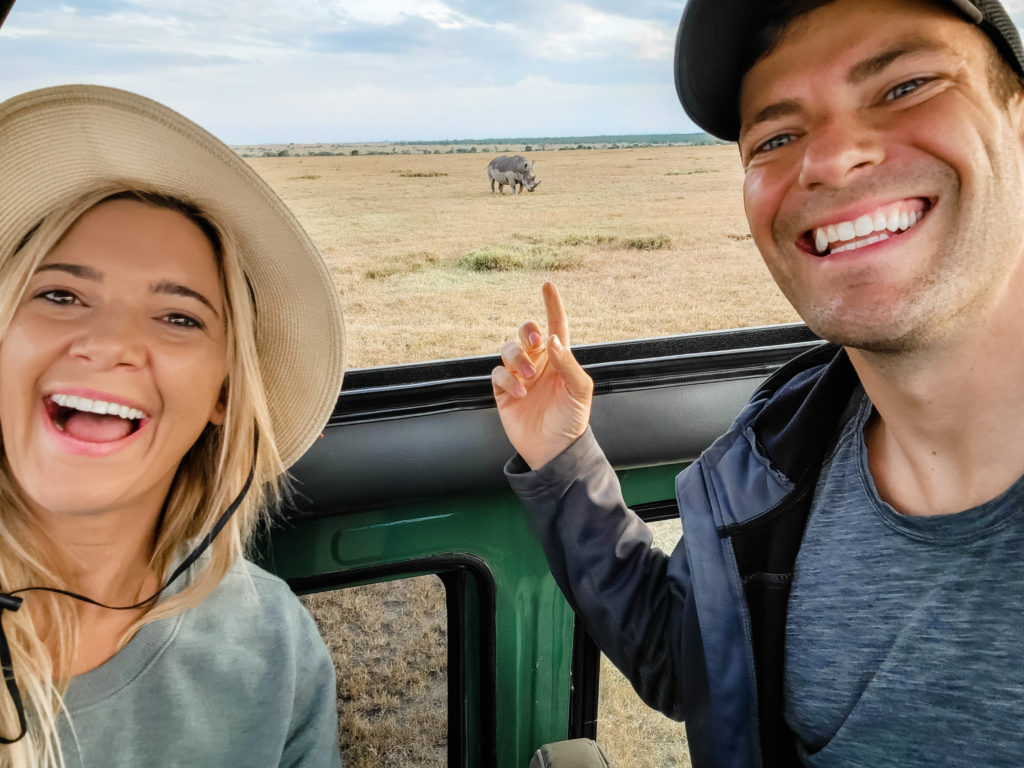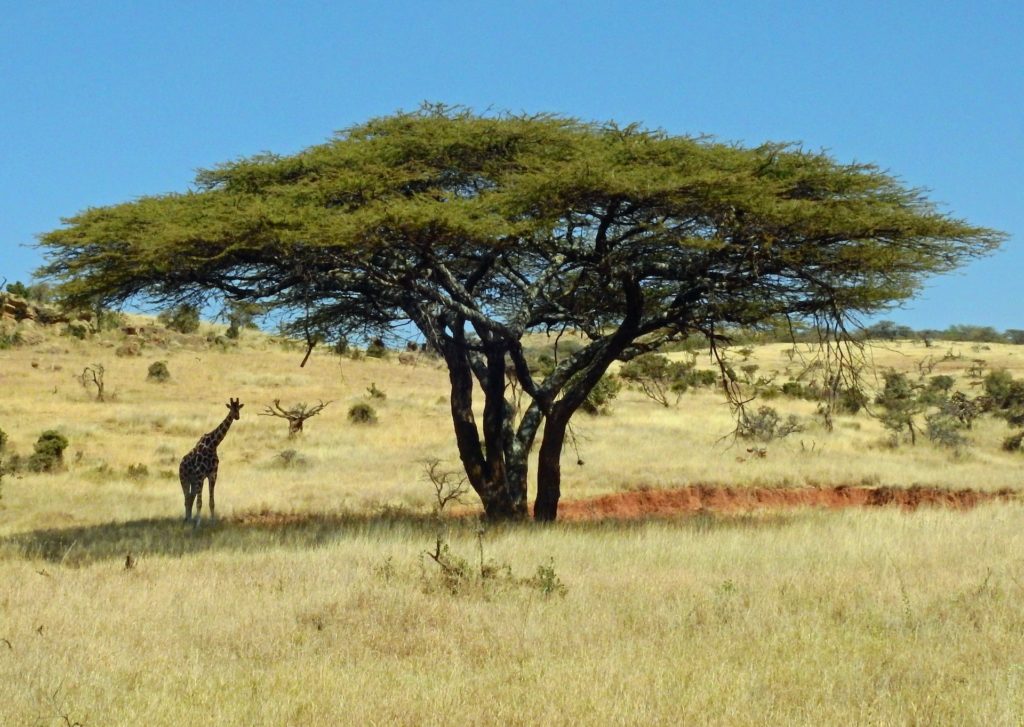
Everyone looks great in Instagram pictures of their safari. However, those moments frozen in time don’t paint a clear picture of what to expect in an African safari. To paint a clear picture, we’ve given you tips to help you pack for safari.
Basics outfits for a safari
These principles will guide your wardrobe choice regardless of where you choose to go on safari, whether in Masai Mara, Tsavo, or Elsa Kopje.
Wear pants and long sleeves
Long sleeve shirts or tops and long pants will cover your skin and protect you from insect bites, the sun, cold, and wind. While many places in Kenya can get hot, it can also get chilly at night (and day, depending on the season).
Long pants are important, especially if you go on a game drive and exit the vehicle. They’ll protect your legs from bites and scratches.
Choose earthy and neutral colors
The whole point of going on a safari is spotting wild animals in their natural habitat. You don’t want to draw attention to yourself. This is especially true for walking and cycling safaris where there’s a high chance you’ll get very close to some animals.
In your effort to blend in, stay away from camouflage clothing. Many countries have these colors reserved for their military. Neutral and earthy tones like grey, khaki, and brown are good.
White, cream, and other bright colors are a no since they draw unnecessary attention and also show dirt and dust easily. Black in the hot weather will fry you, and blue will attract tsetse flies.
Put on closed shoes
Closed shoes are a must if you’re on a walking safari or you intend to leave the vehicle at some point. The ground in the parks and reserves is thorny and uneven. It’s also crawling with snakes and other animals, so protecting your feet is a good idea.
Hiking boots and hiking socks are recommended for walking safaris. For extra protection from snake bites, you can wear gaiters too.
Sunhat

Kenya is a hot country (not desert hot, but hot enough to give someone from a generally cold region a heat stroke). Wearing a sunhat while on safari keeps your face from burning and from suffering heatstroke. Sunhats with full brims are better than sports caps as they protect the face and the neck.
Crowns without a visor or peak aren’t ideal since they expose your head to sunburns, especially if your hair is thinning, is bald, or has parted hair.
Stay away from strong cologne or perfume
Your scent affects how others view you; if they find you attractive or not. In some cases, they affect your first impressions, productivity, and mood.
There’s some truth to all this, but when you’re in the wild, you best tone it down or, if possible, avoid colognes and perfumes. Animals have great senses, so a foreign-smelling cologne or perfume will repulse wildlife and remove from your safari experience.
That said, your morning deodorant is fair game. The last thing you want is to make the safari unbearable for others.
Protecting yourself from the cold
Game drives are scheduled for early mornings or sundown since they are the best times to catch animals on the hunt or lazying around in the open. In Kenya, the morning drives can be chilly and sometimes cold.
On these evenings and mornings, you want to wear:
- Long pants
- A warm fleece
- Closed shoes and socks
It will be even colder if you insist on a nighttime safari. In such instances, our guide will hand you a blanket. But it’s best to come prepared for the cold too.
We advise you to stash a rainproof jacket in the vehicle or your backpack, even when it’s hot outside. The weather changes drastically, and you don’t want to be caught off-guard by the rain.
Protection from sunburn and heat

To protect yourself from the heat, wear the following:
- A wide-brimmed hat covering your neck and face. Bonus points if the hat is made of a UV-protective material.
- Loose-fitting and a long-sleeved top.
- Closed shoes. But if you opt for sandals, wear sunscreen on your feet. The sunscreen you choose should protect you from both UVB and UVA rays.
- Sunglasses
Protect yourself from insects
When on safari, you’re looking forward to seeing a lot of animals. What you’re not excited about is local insects. Your choice of wardrobe should be comfortable enough but protect you from insects.
The long sleeves tops, closed shoes, and long pants protect you from insect bites, especially mosquitoes and tsetse flies which cause malaria and sleeping sickness, respectively.
Aside from covering up, you should use insect repellant and take anti-malaria medication before your travel. Most accommodations we recommend have mosquito nets, so you won’t have to worry about insects feasting on you in your sleep.
With that breakdown, you are good to pack for your Kenyan safari. If you need more guidance or help planning your safari, call our representatives at Capture Kenya today.
